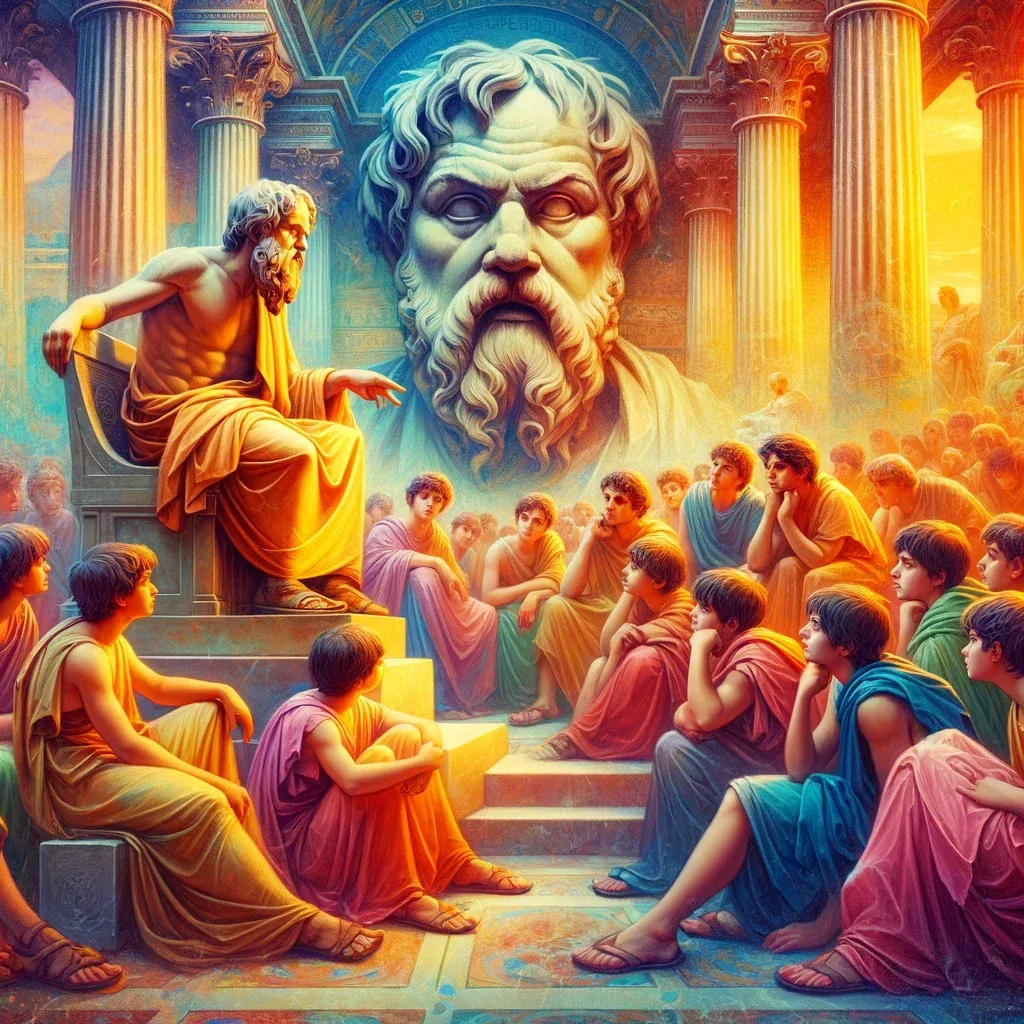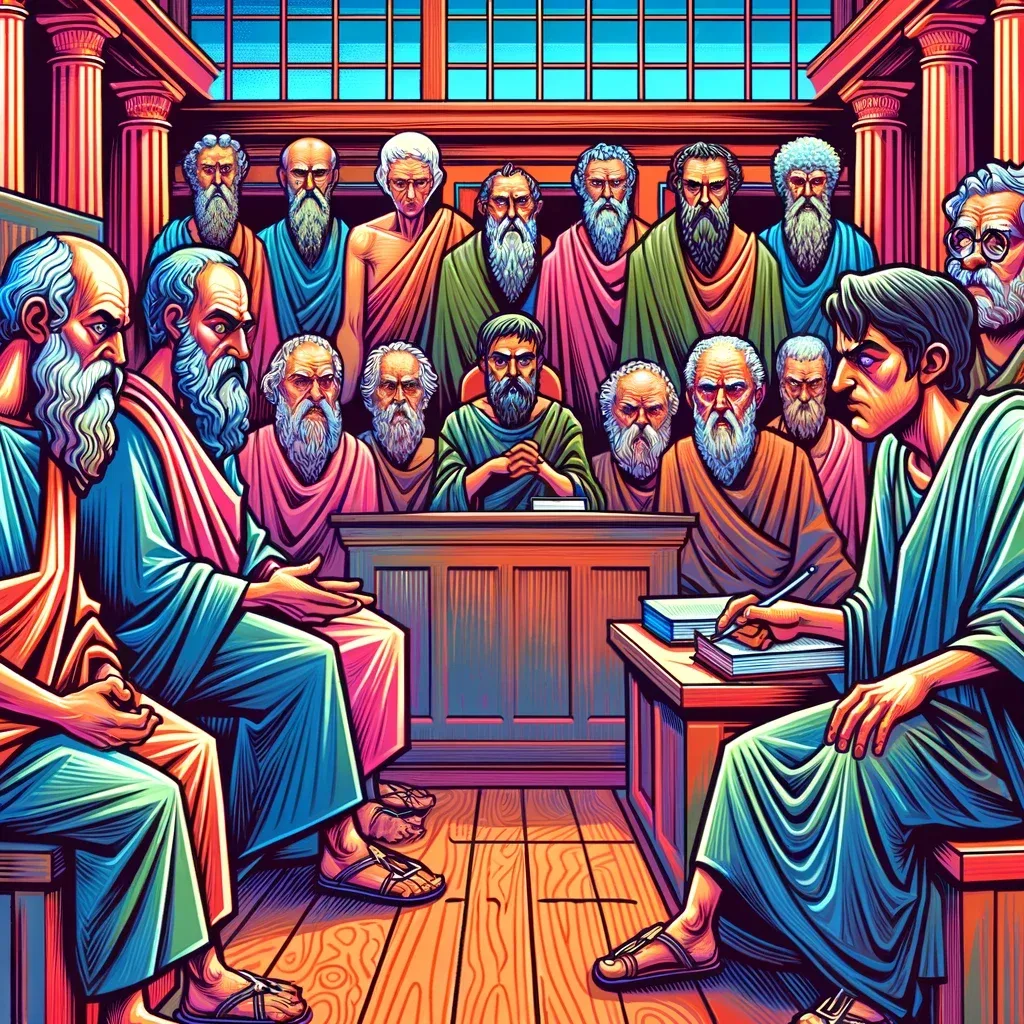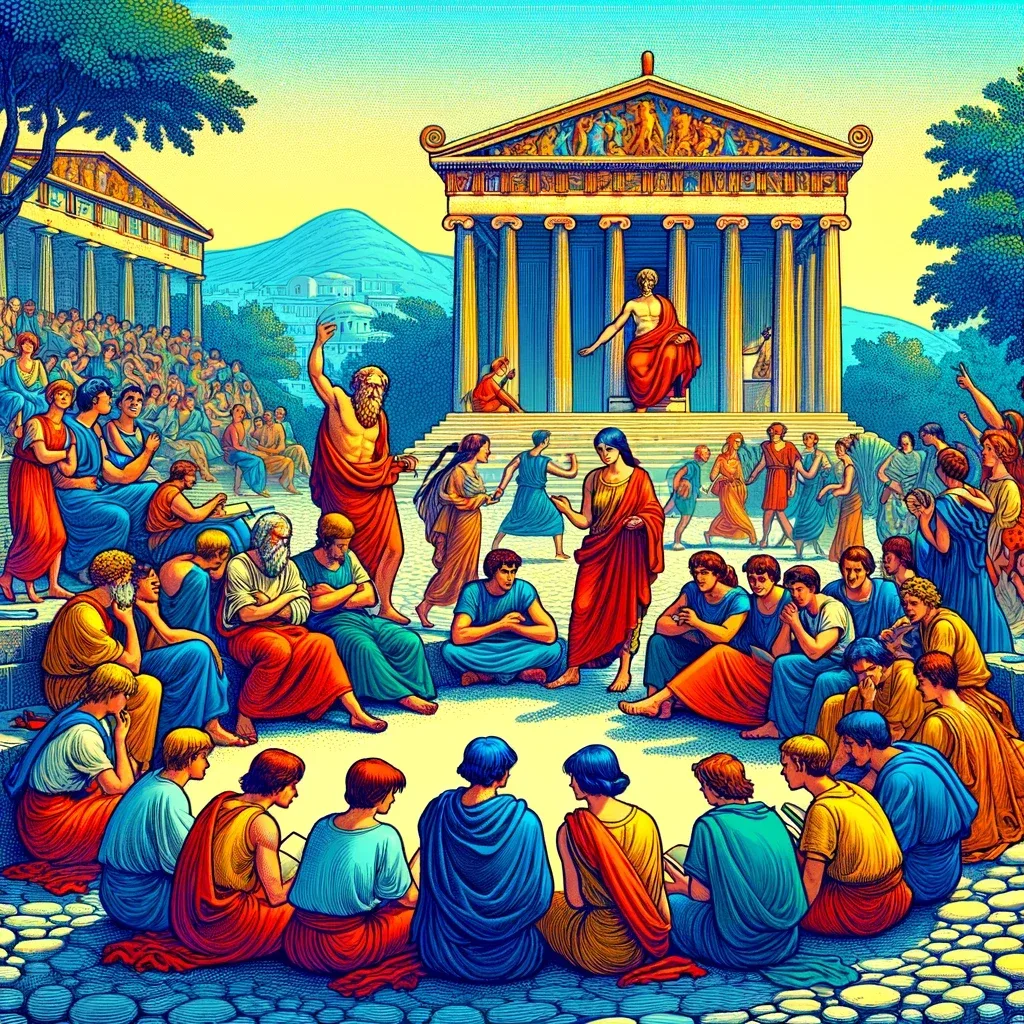Socrates, the XNUMXth century BC Athenian philosopher, is often remembered for his dialectical method and his relentless search for truth. A notable dimension of his philosophical thought is his approach to youth, a theme that remains relevant to this day. In this article, we explore how Socrates approached youth in his philosophical reflections, highlighting the essential aspects of his thought and his interaction with the young people of Athens.

Youth from a Socratic Perspective

The Role of Education
For Socrates, education was the fundamental pillar in the development of young people. He believed that true education involved the cultivation of the soul, rather than the mere transmission of knowledge. His dialectical approach, known as the Socratic Method, aimed to encourage critical thinking and self-reflection among young people.
The Concept of Arete
Arete, or moral and intellectual excellence, was a key concept for Socrates regarding youth. He encouraged young people to pursue arete, not just in academic performance or physical abilities, but primarily in character and moral integrity.
Dialogue with Youth
Socrates was famous for his direct engagement with young people on the streets of Athens. His dialectical method not only provoked questioning, but also encouraged young people to examine their beliefs and values, a process he considered essential for personal and moral development.
Challenges and Controversies

The Influence on Young People
Socrates was often accused of corrupting the youth. His critics claimed that he encouraged young people to question authorities and traditions. However, for Socrates, these questions were crucial for the development of thinking and morally responsible individuals.
Confrontation with Athenian Democracy
Socrates' approach to youth occurred in a context of tensions with Athenian democracy. He was skeptical of the masses and concerned with the formation of virtuous citizens, which sometimes placed him in opposition to the democratic practices of the time.
The Legacy of Socrates and Youth
Despite the controversies, Socrates' legacy in the education and training of youth is undeniable. His methods and ideals continue to influence modern education and philosophical thought.
Contemporary Relevance

Education and Critical Thinking
Socratic methods of teaching and dialogue continue to be relevant in contemporary education. The emphasis on critical thinking and self-reflection is seen as fundamental in the formation of young citizens.
Modern Youth Challenges
Socrates' approach can offer valuable insights into the challenges young people face today, such as social pressure, the search for identity, and moral development.
Socrates and the New Generations
The example of Socrates, as a philosopher who directly engaged with young people and challenged them to think for themselves, can serve as inspiration for educators and leaders working with contemporary youth.
Conclusion
Socrates' approach to youth in his philosophical reflections reveals a deep commitment to intellectual and moral development. His emphasis on education as a means of cultivating the soul and his dialectical method continue to be relevant, offering valuable insights into the education and development of youth today. Socrates reminds us of the importance of nurturing young minds not just with knowledge, but with wisdom and integrity.
Frequently Asked Questions about “How did Socrates approach youth in his philosophical reflections?”
This FAQ seeks to clarify the main doubts about Socrates' approach to youth, exploring aspects of his educational philosophy and methodology.

1. How did Socrates view the education of young people?
2. What was the main characteristic of Socrates' teaching method?
3. What does the concept of 'Arete' mean for Socrates?
4. Socrates was accused of corrupting the youth. Why?
5. How did Socrates interact with young people in Athens?
6. How does the Socratic method influence modern education?
7. What was Socrates' view of Athenian democracy?
8. What are the modern challenges facing youth that can be addressed by Socratic thinking?
9. What is Socrates' legacy in the formation of youth?
10. How did Socrates influence philosophy in education?

This FAQ offers an in-depth understanding of how Socrates approached youth in his philosophical reflections, highlighting his educational methodology and his lasting impact on philosophy and education.





